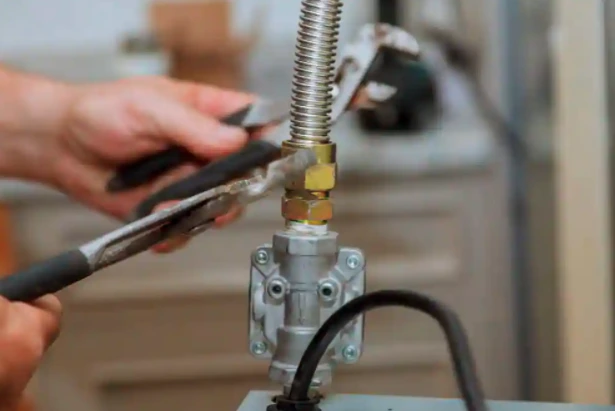Two-fifths of US energy come from natural gas, most of which is domestically produced. Half of the American households use gas daily for cooking, heating, and drying clothes and bedding.
If you haven’t got a gas line installed yet, should you go for it? What are the reasons to consider before switching to natural gas for most of the household needs? Is investing in gas appliances worth it?

Natural gas is clean
Despite the growing popularity of alternative energy, most of the energy generated in the US comes from non-renewable sources, including fossil fuels. Fossil fuels generate a lot of carbon dioxide and some other air pollutants when burned. Coal is the most notorious offender in this case.
The combustion of fossil fuels contributes to climate change. However, among those types of fuels, gas is the cleanest energy source. When burned, it generates CO2 and water vapor, with no additional air pollutants.
Gas appliances are money-savers
Natural gas is less expensive than electricity. In states like Florida or Texas, where the production of electricity is dependent on natural gas, the difference in prices can be even more pronounced.
If you switch your home to gas appliances, you can cut your utility bills by a shocking 30%. Appliances like gas stoves and dryers are usually more efficient than their electric counterparts.
Cooking is better with gas
It’s a proven fact. Any meal tastes better when prepared in a gas oven, or on a gas stove. Compared to electric cookware, kitchen gas appliances can generate heat instantly, maintain consistent temperatures better, and give you more control over the heat’s intensity.
Electric appliances need to warm up before cooking, which is not the case with gas-powered ones. These valuable minutes add costs to your utility bills in the long run. Electric ovens are prone to uneven cooking because the heat they create tends to fluctuate a lot.
If your food is under-cooked on the inside but almost burned at the edges, you risk not only an unpleasant meal but a bacterial infection as well.
Gas appliances are built to last
Most household gas appliances are manufactured and warrantied to last up to 20 years and more, which is longer than their electric counterparts. Gas boilers are warrantied up to 30 years, gas ranges and water heaters last 12 to 15 years, and often more.
Of course, the brand quality and the intensity of use will influence the lifespan, with proper maintenance making gas appliances last more. That’s why you need to remember two things when going with natural gas for your home.
First, choose those appliances that carry the Energy Star label. Second, get them inspected by a qualified technician at the first sign of trouble.
Power outages won’t concern you
It may sound shocking, but the US has more power outages than any other developed country. A lot of the American power grid operates on old, outdated equipment, which, unsurprisingly, breaks down from time to time. Storms, wildfires, and other climate events can bring the whole sections of the grid down as well.
Blackouts hit the hardest during the winter months if your house is heated by electricity. But if your house is connected to a gas line, you will have no problems with staying warm or cooking your meals.
How to convert your home to natural gas
The benefits of switching to natural gas are apparent. But while a lot of companies and individuals claim to provide quality services, you should choose only properly licensed contractors.
Installing the pipes, connecting new appliances, or even performing a check of your gas delivery system poses risks in the hands of an inadequately qualified contractor.
A good service provider will start with examining your property, checking for leaks using modern certified equipment, and performing necessary repairs. They will advise you on all matters associated with gas appliances installation, estimate the costs, and only then proceed with connecting heaters, ranges, dryers, and fireplaces to the gas line.
Safety issues
You should not attempt installing gas appliances if you lack proper training and knowledge. Licensed and insured plumbing service providers, like EPU, are your sure bet when it comes to gas installation and maintenance. Hiring a licensed provider means that your gas appliance will be installed safely and with utmost care.
Since gas leaks can be harmful to your health and highly-concentrated natural gas is explosive, safety during installation is your main concern. It’s not the kind of job you should be bargain hunting for.
Licensed plumbers know everything about pipes. They can detect damaged sections and faulty equipment. Their expertise and training allow them to do everything from checking the condition of your gas line to hooking up appliances. And it will be reasonably fast and 100% safe.
Even a seemingly simple thing like connecting a gas stove should be done by a professional. Most homeowners don’t realize that every appliance has a certain amount of gas required to operate, and the piping is sized precisely to supply that need. You can’t just plug a new gas device into an existing system anywhere you want.
Also, appliances that are not properly installed become a hazard in the long run. Faults like ill-fitting pipes, corrosion, substandard materials will show up during an inspection, and you will be forced to pay for repairs. This will also negatively impact the value of your property if you’re looking to sell.
Conclusion
Going with natural gas for your home is a solid, financially savvy option. But to do it properly, you must be sure that your gas appliances installation is performed by a licensed service provider.
They will examine your property, check for leaks, do repairs, if necessary, and advise on choosing and installing the correct devices for your home. With proper care and maintenance, your gas delivery system will operate safely and efficiently for many years to come.

